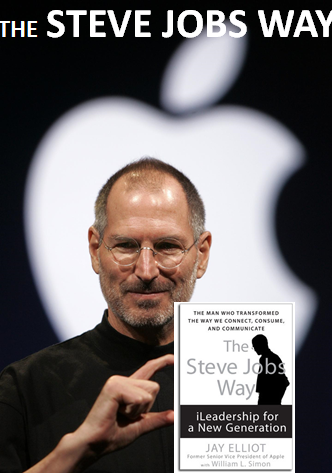Food for thoughts:
- Branding (7)
- Content marketing (19)
- Corporate training (3)
- Crisis Management (1)
- Demand generation (19)
- Digital PR (6)
- Engagement strategies (28)
- Entertainment marketing (2)
- Journalism (12)
- Leadership (7)
- Marketing communications (12)
- Media relations (6)
- Mobile marketing (2)
- Personal branding (4)
- Personal from founders (5)
- Public relations (9)
- Public speaking (5)
- Publishing (5)
- Reputation Management (1)
- Sales (19)
- Sports marketing (3)
- Thought leadership marketing (3)
Recent Posts
- Customer Service Is The New Marketing. It Goes Further, Is More Social & Data Centric
- Webinar: Rethinking The Sales Funnel and Redefining the Rules Of Selling
- What’s Next In Advertising & Customer Tracking Tools? A Revision for Analytic Tools and an Evolution for Lead Scoring
- Marrying CRM with Social Media, Product Launches with Content, Marketing with Sales
- Selling Despite Distractions: Customer Retention and Repeat Sales
Building brand the Steve Jobs Way: iLeadership for a New Generation – interview with ex-SVP of Apple, Jay Elliot
11 Jun2013
Do your Sales & Marketing teams need alignment & ability to make better business decisions?
Do YOU need peace of mind?
- Optimize your marketing and sales processes
- Boost your career and earnings
- Improve your team cohesion and performance
- Regain work-life balance and thrive
- Understand yourself and others as never before
By Olga Kostrova, co-founder and COO of SocialAgenda Media.

If you ask anybody who is even remotely familiar with the world of technology “Who was the world’s greatest product manager of all time?” I believe the answer would be consistent – Steve Jobs is the most admired CEO and product innovator, because of his exceptional sense of simplicity, elegance, and incomparable user experience. Jay Elliott worked side by side with Jobs as Senior Vice President for Apple for many years. Following our cup of coffee with Jay in Los Gatos, I decided to ask him a few questions and share his insights with you. Jay is the author of worldwide best sellers “The Steve Jobs Way: iLeadership for a New Generation” and “Leading Apple with Steve Jobs” and is now represented by SocialAgenda Media as a speaker. As you might know, I love stirring your imaginations; this time with quotes – to spice up my questions… Enjoy!
Olga Kostrova: Max DePree said “The first responsibility of a leader is to define reality.” How did Jobs define the reality which made both employees and customer tribes to follow him with such unquestionable loyalty?
Jay Elliot: Steve’s reality was the User. He was defining what the user really needed and how it could benefit their life. Obviously it takes the user to agree and most Apple users were so loyal they were almost like a cult!
Olga Kostrova: “Every advertisement should be thought of as a contribution to the complex symbol which is the brand image”, as David Ogilvy said. What ideology, what complexities and simplicities of the conceptual “symbol” did Jobs envision with Apple when he started the company, and how did it evolve in the next few decades?
Jay Elliot: Steve envisioned simplicity as the undercurrent of Apple, it was because the products were so simple to use with such efficiency that they changed the world. Over time the brand got even stronger, particularly with the use by young children at school and home.
Olga Kostrova: And as Ogilvy also said “Nobody has ever built a brand by imitating somebody else’s advertising”. What marketing innovations made Apple what it is now? What major strategies and tactics made the most impact and led Apple to become probably the most desired brand in the world?
Jay Elliot: The advertising was based on being different and again, always delivering a message that resonated with users – simplicity of use, and great benefit to your life. It started with Dick Cavett with the Apple II; he was honest, straight to the point of how this product would benefit your life, and then moved to the Mac with the 1984 ad in the Super Bowl. That was the first time people lined up around the stores, the day after the ad ran, to see this new innovation called a mouse. The strategy is presenting the benefit to the user and the simplicity of use.
Olga Kostrova: “Brands must empower their community to be change agents in their own right. To that end, they need to take on a mentoring role. This means the brand provides the tools, techniques and strategies for their customers to become more effective marketers in achieving their own goals”, shares Simon Mainwaring. What Apple’s practices enabled their customers to become their greatest advocates? What was the role of Guy Kawasaki in the big picture of the brand advocacy and what was his impact on the brand adoption?
Jay Elliot: Apple put the word “personal” in the computer. Windows dominated the corporate landscape, but with Apple it was always, you, the user. A product that was so intuitive to use, your children could use it. iPads today are used by 5 year olds to 90 year olds, its about the user. Probably the children had the greatest impact of being advocates than any other group, except developers. Despite how Guy represents himself, he was a low level guy in marketing who had very little impact, other than to make the word “evangelist” famous, and he did not invent that word.
Olga Kostrova: Jack Welch said “Before you are a leader, success is all about growing yourself. When you become a leader, success is all about growing others.” I understand Jobs had done a lot of inner and spiritual seeking. How did that affect his influence on others?
Jay Elliot: First, I do not totally agree with Jack’s statement, it is old school. The complete passion for Apple and the product was the part of the inspirational leadership that Steve provided. It started and ended with the product in all aspects of the organization. His Buddhist background gave him the ability to bring points down to very simple forms, and helped keep him on track. But it was the product leadership that opened the way for people to grow.
* * *
This article is continued on next page. Please read Jay’s answers to leadership questions in the blog post The Steve Jobs Way: iLeadership for a New Generation – interview with ex-SVP of Apple, Jay Elliot.
* * * * *
Also read:
- Marketing’s Gold Rush to Mobile: Cracking The Code – Tactics, Issues, Solutions
- B2B Content Marketing Lessons & Strategies for 2014: Interviews With Thought Leaders
- Marketing to the Internal Audience – From Low ROI To Cost-Effective Corporate Training
- Leadership The Steve Jobs Way: iLeadership for a New Generation – interview with ex-SVP of Apple, Jay Elliot
- Top 5 Most Important But Not Obvious Principles Of Selling And Business In General – interview with speaker Richard Grehalva
- Marketing Through Sports: Secret Sauce of Getting Publicity With Celebrity Endorsement Deals
- In: Branding|Leadership|Public speaking|Publishing
- Tags: apple, apple marketing, authors, book promotion, book publishing, branding, building brand, business speaker, Celebrity endorsement deals, Celebrity endorsements, content, jay elliot, keynote speaker, leadership, marketing, marketing for authors, media relations, mobile, olga kostrova, public releations, Richard Grehalva, socialagenda media, speaker, speakers, speaking bureaus, steve jobs
Comment Form
Copyright ®2008 - Demand Generation done right - Log in
Powered by WordPress | Evidens [White] Theme by Design Disease for PremiumThemes.com

Connect with us: